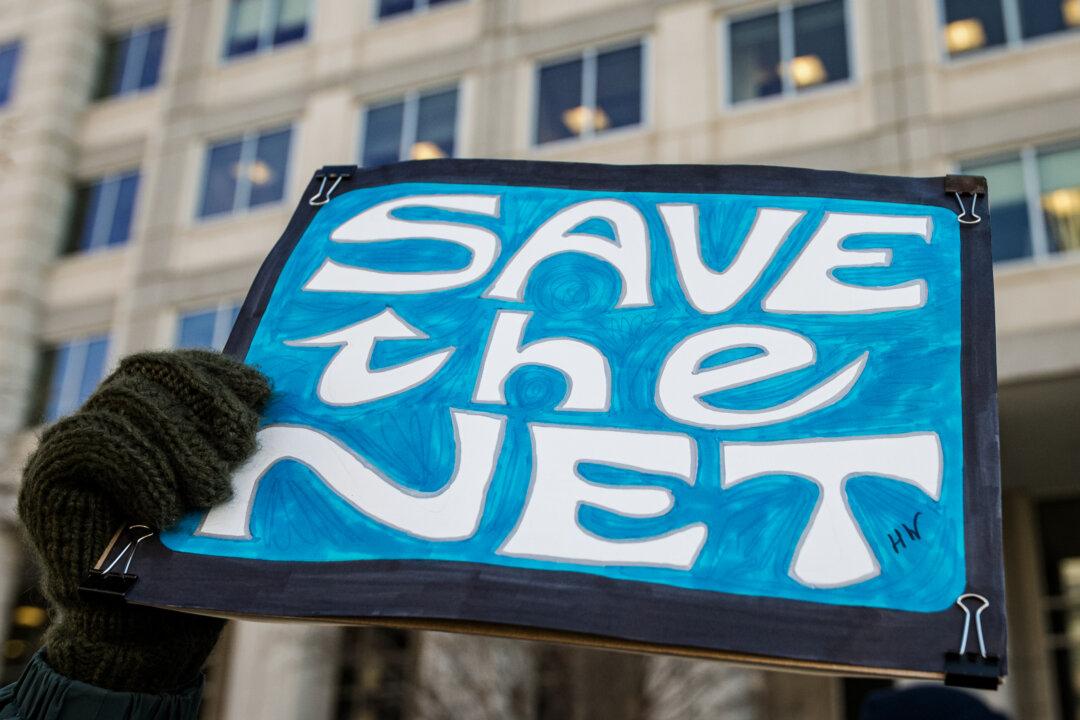A U.S. appeals court has granted a stay on the Federal Communications Commission’s (FCC’s) declaration of authority over broadband internet access (BIAS).

A woman holds a "Save the Net" protest sign during a demonstration against the proposed repeal of net neutrality outside the Federal Communications Commission headquarters in Washington, on Dec. 13, 2017. Alex Edelman / AFP via Getty Images




